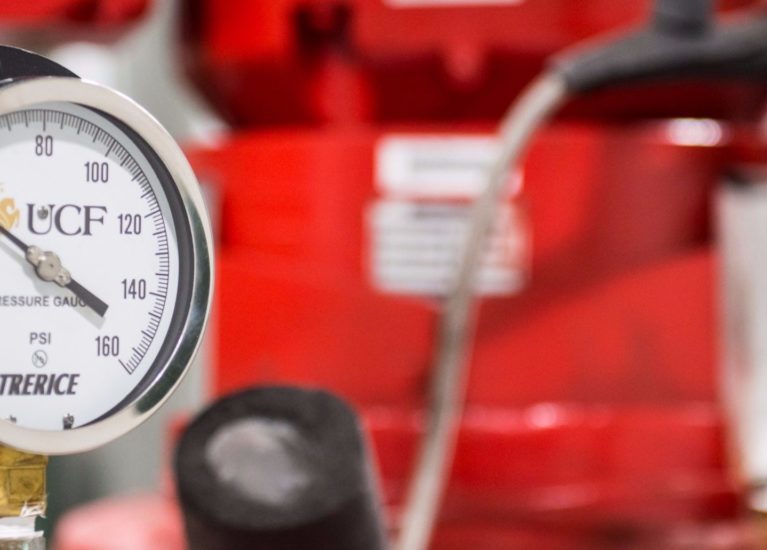
Engineering Services
Construction Support and Plans Review
The primary responsibility of the facilities engineering group is to review and approve all design and construction plans to ensure they meet the standards of the university. This includes reviewing architectural, mechanical, electrical, plumbing, and other structural plans. The program also ensures that all plans meet the needs of the campus community and are aligned with the overall mission and goals of the university.
Overall, the facilities engineering plans review program is critical in ensuring that all construction and renovation projects on campus are safe, efficient, and meet the needs of the campus community while adhering to all relevant codes and standards.
Efficiency and Modernization
The department is tasked with identifying opportunities for energy conservation, implementing energy-saving measures, and monitoring energy usage to ensure that the university is meeting its sustainability goals.
One of the responsibilities of the energy services group is to develop and implement energy management strategies to reduce energy consumption and costs. This may include retrofitting buildings with energy-efficient lighting, HVAC systems, and appliances, as well as implementing energy-saving practices such as turning off lights and computers when not in use. Energy services is also responsible for monitoring energy usage and analyzing data to identify areas where energy usage can be further reduced. This includes tracking energy consumption in real-time, identifying areas of excessive usage, and developing plans to address these issues.
In addition to new building commissioning, UES also practices recommissioning (used after a building becomes fully operational) and retro commissioning (used when an existing building was never initially commissioned) of existing buildings and their systems. This process programs existing buildings to the original basis of design, verifies building operation schedules by paralleling mixed-use design and retrofits with tenant usage, and calibrating or replaces sensors and valves to reach desired energy baselines.
The department works closely with other departments on campus, such as maintenance and operations, to ensure that energy efficiency is considered in all aspects of facilities management, including construction and renovation projects. Overall, the facilities energy services department plays a critical role in ensuring that the university is operating in an energy-efficient and sustainable manner, reducing costs and minimizing the university’s environmental impact.
Facilities Condition Assessment
The Facilities Condition Assessment program is responsible for evaluating the overall condition of the campus facilities, identifying areas that need improvement, and developing plans to address those issues. The program is tasked with conducting regular inspections of all buildings and structures on campus, including classrooms, laboratories, dormitories, athletic facilities, and administrative buildings.
The Facilities Condition Assessment program is also responsible for maintaining records and documentation of the physical condition of each building and structure, including identifying any necessary repairs, upgrades, or replacements. This information is used to develop long-term plans for facility maintenance, renovation, and construction projects.
In addition, the program works closely with the university’s budget and planning departments to prioritize projects based on available funding and campus needs. It is also responsible for ensuring compliance with all applicable codes and regulations related to facility maintenance and safety.
Overall, the Facilities Condition Assessment program is critical in ensuring that the university’s facilities are safe, functional, and able to support the academic and research needs of the campus community.

